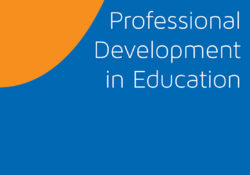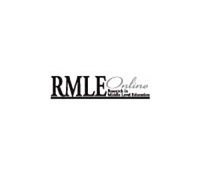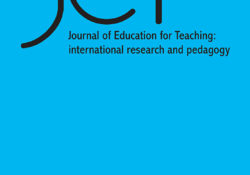tandfonline.com har udgivet en rapport under søgningen “Teacher Education Mathematics”: Divining the professional development experiences of K-12 STEM master teacher leaders in the United States Link til kilde
Like this:
Like Loading...
tandfonline.com har udgivet en rapport under søgningen “Teacher Education Mathematics”: Abstract Abstract The purpose of this qualitative case study was to explore how young adolescents participated in various activities in a science summer camp. A total of 26 Taiwanese students and 16 U.S. students participated in a one-week “Argue like a Scientist” summer camp. Based on the design features of project-based learning, this science summer camp aimed at engaging the students in collaborative scientific argumentation about alternative energies and involved them in various activities related to alternative energies such as a field trip to an ethanol plant and a hands-on project building a solar car. All activities, including the students’ collaborative argumentation, were recorded. Their post-camp surveys were also collected. Three themes emerged from the data analysis. First, regardless of cultural… Continue Reading →
Like this:
Like Loading...
eric.ed.gov har udgivet: This report summarizes the thirteenth survey of states by the National Center on Educational Outcomes (NCEO) at the University of Minnesota. Results are presented for 49 states and 6 of the 11 unique states. The purpose of this report is to provide a snapshot of the new initiatives, trends, accomplishments, and emerging issues during this important period of education reform as states documented the academic achievement of students with disabilities. Key findings include: (1) Fewer than half of the states have defined what college-and-career-readiness means for students with disabilities participating in the alternate assessment based on alternate achievement standards (AA-AAS); (2) Fewer than half of the states offered their current general state assessments on computer-based platforms for math, reading, or science; (3) State technology staff contributed to… Continue Reading →
Like this:
Like Loading...
eric.ed.gov har udgivet: The Thomas B. Fordham Foundation has commissioned studies of state academic standards in five core subjects. This is the fourth of these studies, focusing on state standards for mathematics. For this evaluation of mathematics standards, researchers developed nine criteria under the four areas of: clarity, content, reason, and negative qualities. These criteria were applied to the standards documents of 46 states and the District of Columbia, and standards for Japan were reviewed for comparison purposes. The remaining four states either had no standards or did not make current drafts available. Only three states received a grade of “A,” and only nine received a grade of “B.” More than half received either a “D” or an “F.” The principal failures of these documents stem from the mathematical ignorance… Continue Reading →
Like this:
Like Loading...
eric.ed.gov har udgivet: States are in a crucial phase of implementing the Common Core State Standards (CCSS), which outline the knowledge and skills that students in grades kindergarten through 12 are expected to learn in mathematics and English language arts (ELA) to be prepared for college and careers. As of July 2013, 45 states and the District of Columbia have adopted these voluntary, state-developed standards in both subjects, and an additional state, Minnesota, has adopted the CCSS in ELA only. To learn more about states’ strategies, policies, and challenges in this third year of implementing the CCSS, the Center on Education Policy (CEP) at The George Washington University conducted a comprehensive survey of deputy superintendents of education or their designees in February through May of 2013. Forty states responded, including… Continue Reading →
Like this:
Like Loading...
eric.ed.gov har udgivet: This document contains the transcript of a senate hearing on the crisis in science and math education. The document includes the opening statements of Senators Glenn, Kohl, Bingaman, Lieberman, Heinz, and Sasser, and the testimony of seven witnesses including: Honorable Mark O. Hatfield, Senator from the State of Oregon; Carl Sagan, Ph.D. Cornell University; F. James Rutherford, American Association for the Advancement of Science; Bill G. Aldridge, National Science Teachers Association; Philip Uri Treisman, University of California at Berkeley; Betty M. Vetter, Commission on Professionals in Science and Technology; and Shirley M. Malcolm, American Association for the Advancement of Science. Appendices include the prepared statements of witnesses, pertinent articles, charts, and a statement from the National Society of Professional Engineers. (CW) Link til kilde
Like this:
Like Loading...
eric.ed.gov har udgivet: On February 9, 2012, U.S. Secretary of Education Arne Duncan granted 10 states waivers of key accountability requirements of the Elementary and Secondary Education Act (ESEA), as amended by the No Child Left Behind (NCLB) Act. One year later, applications for this ESEA flexibility, also known as NCLB waivers, had been approved for an additional 24 states and the District of Columbia. States that receive waivers have the flexibility to depart from some of NCLB’s most significant requirements, such as judging school performance against a goal of 100% of students reaching reading and math “proficiency” by 2014 and implementing specific interventions in schools that fall short of performance targets. States with approved waiver applications must meet several new requirements, described below, that relate to standards and assessments,… Continue Reading →
Like this:
Like Loading...
eric.ed.gov har udgivet: This standards review is the first in a series of annual reviews of the Colorado Model Content Standards. Its purpose is to identify student performance over time on measures of exiting mathematics standards, identify ways to affirm and strengthen standards and more clearly articulate the practices used by Colorado schools to promote student achievement to those standards. Discussion areas include: (1) national overview of K-12 mathematics; (2) math standards and achievement in Colorado; (3) input from educators; (4) research and financial resources; and (5) characteristics of “math-successful” elementary and secondary schools. Ten recommendations are presented for improving mathematics teaching and performance: (1) Be clear about the math topics students are expected to know at each grade level; (2) Be clear about what specific proficient student work looks… Continue Reading →
Like this:
Like Loading...
eric.ed.gov har udgivet: The purpose of this research is to compare the rural education practices of China, Taiwan, Canada and the United States. International comparisons of mathematics achievement find that students in Asian countries outperform those from the USA. Excluded from these studies, however, are students from rural areas in China. This study compares the math abilities of 272 selectively chosen 5th grade students from rural, central China, 361 students from rural, northern Taiwan and 95 students from rural, central Pennsylvania. The test instrument was the same as used in previous China vs. USA comparisons and focused on four subtopics: computation, number concepts, geometry and problem solving. The results showed that rural Chinese and Taiwanese students outperformed similar American students in the area of mathematics achievement. The rural Chinese and… Continue Reading →
Like this:
Like Loading...
tandfonline.com har udgivet en rapport under søgningen “Teacher Education Mathematics”: ABSTRACT ABSTRACT In the United States, educator preparation is regulated at the state level. Accordingly, each state education system, and even individual districts, responded uniquely to the COVID-19 pandemic. Western Governors University (WGU) compiled a list of each state regulators’ response to COVID, many of which included relaxation of student teaching requirements. While most of WGU’s teacher preparation programme is delivered online, students complete observations and student teaching (teaching practice) in traditional classrooms. WGU had 1,875 student teacher candidates in the field on 1 March 2020. Through diligent effort all the candidates were able to complete their student teaching. WGU responded by allowing parallelism between the student teachers and their mentor teacher so that the student teacher could engage in teaching in the… Continue Reading →
Like this:
Like Loading...


